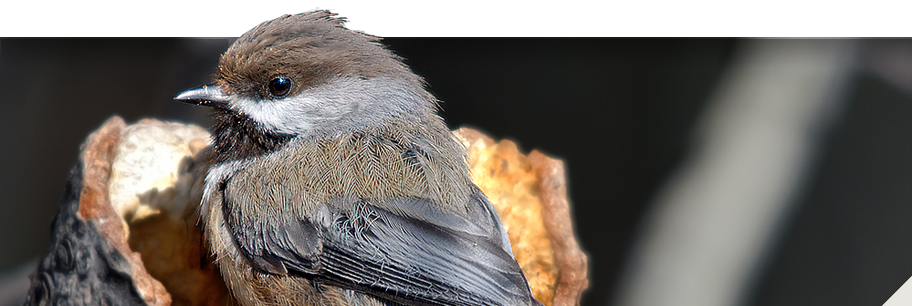 Photo ©
Keith Williams
Photo ©
Keith Williams
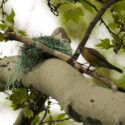
A Timely Reminder
With Easter Sunday coming soon, it’s a good time to remind those celebrating that plastic grass can be an entanglement hazard when birds incorporate it into their nests. For bird-safe fun, use paper grass or colorful sheets of tissue paper to line children’s baskets. If using the plastic version, be sure to collect any that escapes the basket, and cut it into one-inch pieces before disposing of it in the trash (or save it for next year). Every little bit we can do helps!
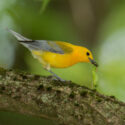
First Chapter in South Carolina
Our newest NestWatch Chapter is the Audubon Center and Sanctuary at Francis Beidler Forest, located in Harleyville, South Carolina.
Chapter coordinator Kristin Threet says the sanctuary has installed nest boxes for Prothonotary Warblers and Eastern Bluebirds and monitors them for NestWatch. As a Chapter, they hope to be a resource for their community to help others get involved with NestWatch at their own homes. If you live near Harleyville and want to get started with NestWatch, consider reaching out to Kristin today!
Find a NestWatch Chapter near you.
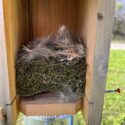
Blow Flies in Nest Boxes
Bird blow flies are an unwelcome blood-feeding parasite found in the nests of many species of birds. Their presence is occasionally blamed for nestling deaths, but there is little scientific evidence that they impact nestling survival, suggesting that their harmful effects are below a lethal threshold. In this month’s blog post, we explore what nest box stewards can or should do about them when monitoring nest boxes.
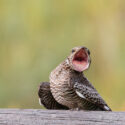
Upcoming Nighthawks Webinar
Join us on April 19, 2023 at 7:00 pm – 8:00 pm ET for a virtual conversation with author and researcher Gretchen Newberry as she takes us into the hidden world of the Common Nighthawk. Neither a hawk, nor even nocturnal, this unusual bird is most active at dawn and dusk, eats insects on the wing with its cavernous mouth agape, and nests on bare ground and rooftops in both urban and rural areas. Gretchen will share her research journey and conservation strategies for this poorly-understood species whose populations—like those of many birds which eat insects—are on the decline.
Register for the free webinar today!